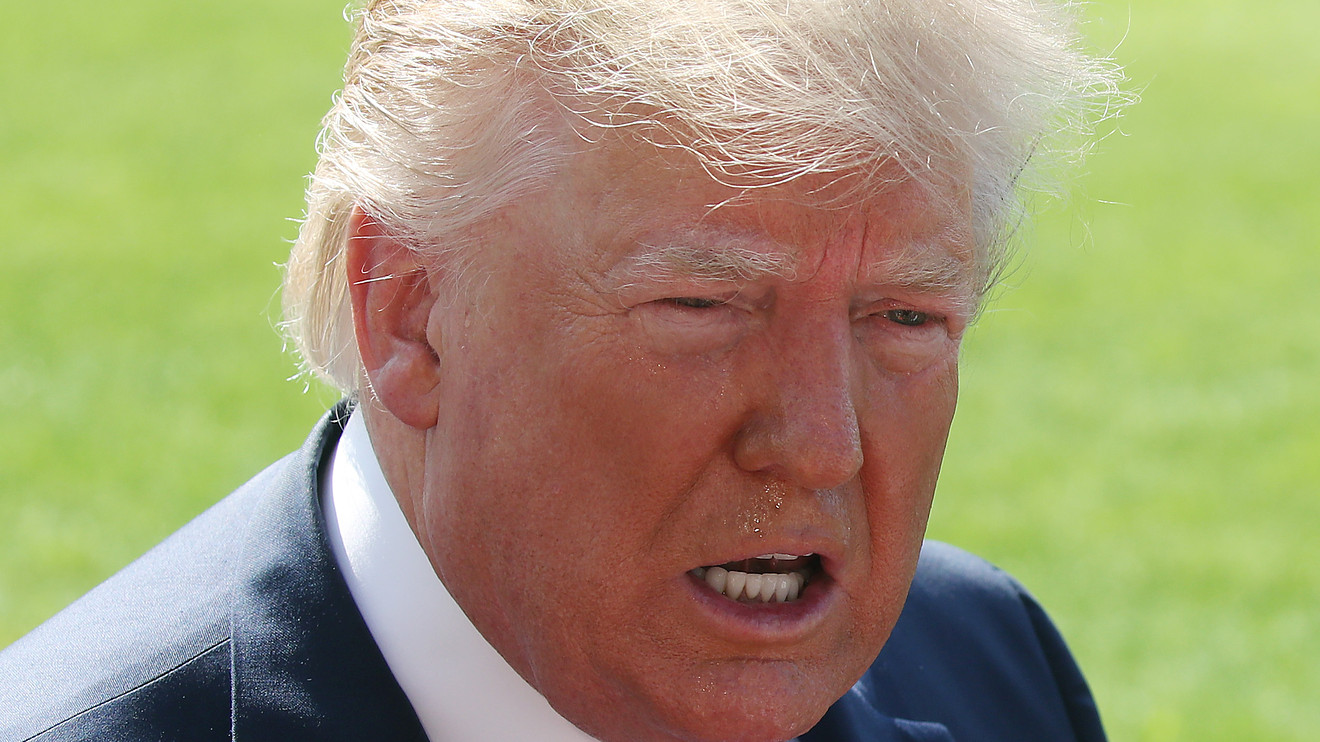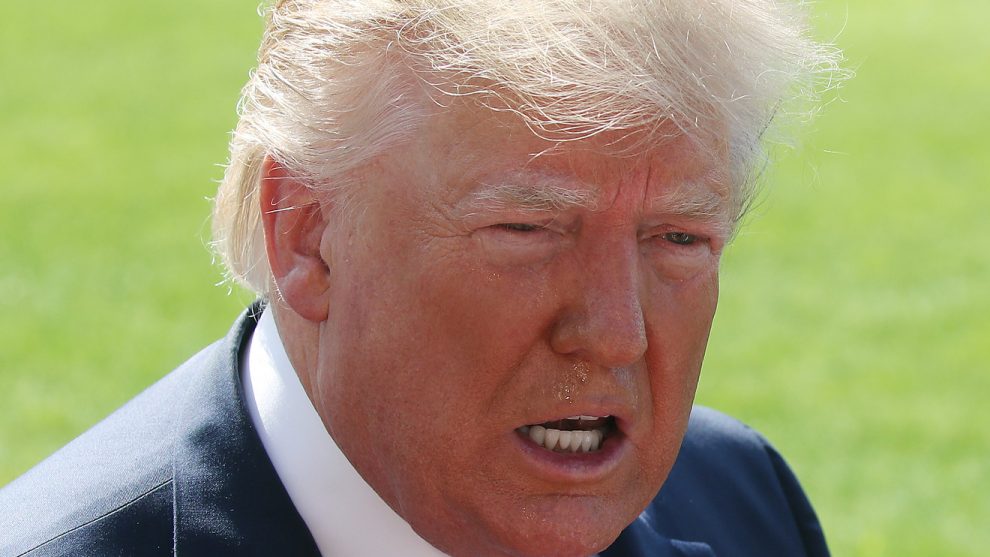
Thank you, Mr. President.
Donald Trump’s comments about bitcoin and the other cryptocurrencies on Thursday were right on target.
He’s right: Their value is “based on thin air.” Your typical cryptocurrency is basically a “frequent flyers” program, only without any airline attached. You hope someone will accept your “miles” for something real. But there’s no guarantee.
He’s right: They are ”highly volatile.” In the past two years bitcoin BTCUSD, -5.80% has gone from $19,000 to $3,200 and back up to $11,000 and change.
He’s right: They can “facilitate unlawful behavior.” I’d argue that’s their main use.
And he’s right: If Facebook FB, +1.81% wants to launch its own currency, it should seek a banking charter.
The president made his comments after palling around with techies at a “social media” summit at the White House. (His glowing references to the U.S. dollar — “…stronger than ever… by far the most dominant currency anywhere in the World…” — also suggest that Larry “King Dollar” Kudlow, his chief economic adviser, has been whispering recently in his ear.)
They come as another cryptocurrency bubble, or mania, threatens to reinflate.
Bitcoin has trebled so far this year, and is back above $10,000. Cryptocurrencies are like a virus that won’t die. They keep metastasizing. There are still more than 2,000 cryptocurrencies in existence, and their theoretical total value is about $318 billion — more than the value of Procter & Gamble PG, +0.53% , and only slightly less than that of Exxon Mobil XOM, +0.08% .
I know which I’d rather own.
Cryptocurrencies are a pure gamble with no discernible fundamentals whatsoever. The cryptocurrency “markets” are rife with fraud, scams and manipulation. I’d love them if I were a con artist.
Have fun. But you are better off wagering your money at the race track: At least there you can see the horses.
Cryptocurrency fans were cheering Trump’s comments on Thursday, because their market feeds on attention. Trump caused a brief — very brief — spike in the price of Bitcoin.
But they can’t contradict a single one of his arguments. He’s right. He’s so right, his comments are truisms.
It was Ohio State coach Woody Hayes who said allegedly that when a quarterback throws a pass, only three things can happen, “and two of them are bad.” But cryptocurrencies are even worse. When cryptocurrencies boom, only two things can happen, and both of them are bad.
The first is that they can boom, and then they can crash — at which point you find that lots of ordinary retail investors have been hosed, in dotcom style, by insiders.
Plenty of that happened in 2017. Some of the cases are now making their way through the courts.
That’s bad.
The second is that cryptocurrencies can boom, and then NOT crash.
If that happens, congratulations: You’ve just helped create a shadow currency system that can be used worldwide by terrorists, extortionists, drug dealers, child pornographers, hit men, and anyone else who doesn’t want to go through the regular banking system.
That’s even worse than the first outcome.
Some of the biggest fans of cryptocurrency: Hackers who use ransomware to extort money from hospitals, municipalities and others. The global WannaCry ransomware attack of 2017 helped put Bitcoin on the map.
Yes, by all means let’s make that even easier, shall we?
Cheerleaders for cryptocurrencies like to present themselves as noble, heroic champions of monetary “freedom.” Digital currencies will “democratize” money, break up power structures, “decentralize” the world, and so on.
It’s all nonsense.
Anarchy doesn’t help the weak, it helps the powerful. It doesn’t serve the interests of the honorable, but of the ruthless. Read up on the Dark Ages, folks. Read up on the Wild West.
The naive who rail against regulation and big government need to study more about what the world was like before these terrible, terrible things came along.
In some parts of the crypto cult, there’s more than a whiff of paranoia about banks and “international financial interests.” Cue: Illuminati, Elders of Zion, the Rothchilds, Federal Reserve, and so on.
(How ironic, incidentally, that Trump was happy to pander to those people during his election campaign)
But one aspect of bitcoin isn’t often talked about. It isn’t really forward-looking. It’s incredibly retro.
Bitcoin is tight money. There’s only a limited supply of bitcoins . The number in existence cannot be expanded by much, and only very slowly. And we’ve seen this movie before. Tight money helped cause the Great Depression of the 1930s and probably the previous great depression of the 1870s. Tight money helped make the European debt crisis much worse. Money is a medium of exchange. If there isn’t enough of it to go around, the economy simply slows down.
Tight money — once based on gold — was a disastrous financial superstition.
Actually, the current debate in finance is about how loose you can make money. Modern Monetary Theory argues, in effect, that you can pretty much loosen it all you want. That may be the other extreme. But at least it makes money the servant of the economy, not the other way around.








